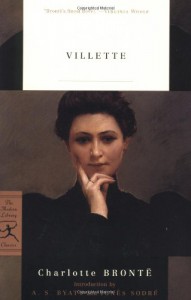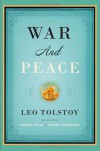
Have you ever had one of those days where everything goes wrong? For Lucy Snowe, the narrator of Villette, her entire life is like one of those days. Having lost her family at a young age due to mysterious circumstances never quite revealed, she journeys alone to Villette where she becomes a governess for school-owner Madame Beck. Excelling at her work, she progresses to the station of teacher and has some emotionally fraught entanglements with the people around her.In many ways, Villette was a difficult book to read. Lucy was a secretive narrator, holding some information back only to reveal it later and giving the reader few clues about her feelings. This meant I had to be paying close attention at all times to really get the best out of the book. But by the time I was half-way through, I was enjoying Lucy's reserve as it made any flashes of real feeling much more profound. I could also relate to this characteristic of hers; her pride and self-protection.Another difficulty was the odd conversations written in French. I understand this adds authenticity but as someone who has never studied French (my school did German and Spanish), I worried that I missed some things. Bronte did provide just enough English in these sections for me to follow what was going on and it was only occasionally that French was used, but it was tricky for me.So yes, this was a difficult book and it required much mental exertion but boy, was it worth it. Bronte's characterisation was simply flawless - very subtle but powerful. Somehow, without explicitly telling me much about each character, I felt as though I knew them as well as my friends. From Ginevra, Lucy's self-indulged and lively friend, to Madame Beck, a sneaky puppet-master with her eye at every keyhole, each character was fully formed. My favourite was Monsieur Paul, the literature teacher.Bronte's wonderful writing meant I was connected to the characters, especially Lucy. So at certain points in the book, I was heartbroken right along with her. And this I think was the true power of the book - Bronte pulls you in and takes you right along with Lucy. All the other stuff faded into the background for me; the theological discussions, the morality and the pedagogy of teaching. That was all interesting too, but I was too busy living the book alongside Lucy.
 Have you ever had one of those days where everything goes wrong? For Lucy Snowe, the narrator of Villette, her entire life is like one of those days. Having lost her family at a young age due to mysterious circumstances never quite revealed, she journeys alone to Villette where she becomes a governess for school-owner Madame Beck. Excelling at her work, she progresses to the station of teacher and has some emotionally fraught entanglements with the people around her.In many ways, Villette was a difficult book to read. Lucy was a secretive narrator, holding some information back only to reveal it later and giving the reader few clues about her feelings. This meant I had to be paying close attention at all times to really get the best out of the book. But by the time I was half-way through, I was enjoying Lucy's reserve as it made any flashes of real feeling much more profound. I could also relate to this characteristic of hers; her pride and self-protection.Another difficulty was the odd conversations written in French. I understand this adds authenticity but as someone who has never studied French (my school did German and Spanish), I worried that I missed some things. Bronte did provide just enough English in these sections for me to follow what was going on and it was only occasionally that French was used, but it was tricky for me.So yes, this was a difficult book and it required much mental exertion but boy, was it worth it. Bronte's characterisation was simply flawless - very subtle but powerful. Somehow, without explicitly telling me much about each character, I felt as though I knew them as well as my friends. From Ginevra, Lucy's self-indulged and lively friend, to Madame Beck, a sneaky puppet-master with her eye at every keyhole, each character was fully formed. My favourite was Monsieur Paul, the literature teacher.Bronte's wonderful writing meant I was connected to the characters, especially Lucy. So at certain points in the book, I was heartbroken right along with her. And this I think was the true power of the book - Bronte pulls you in and takes you right along with Lucy. All the other stuff faded into the background for me; the theological discussions, the morality and the pedagogy of teaching. That was all interesting too, but I was too busy living the book alongside Lucy.
Have you ever had one of those days where everything goes wrong? For Lucy Snowe, the narrator of Villette, her entire life is like one of those days. Having lost her family at a young age due to mysterious circumstances never quite revealed, she journeys alone to Villette where she becomes a governess for school-owner Madame Beck. Excelling at her work, she progresses to the station of teacher and has some emotionally fraught entanglements with the people around her.In many ways, Villette was a difficult book to read. Lucy was a secretive narrator, holding some information back only to reveal it later and giving the reader few clues about her feelings. This meant I had to be paying close attention at all times to really get the best out of the book. But by the time I was half-way through, I was enjoying Lucy's reserve as it made any flashes of real feeling much more profound. I could also relate to this characteristic of hers; her pride and self-protection.Another difficulty was the odd conversations written in French. I understand this adds authenticity but as someone who has never studied French (my school did German and Spanish), I worried that I missed some things. Bronte did provide just enough English in these sections for me to follow what was going on and it was only occasionally that French was used, but it was tricky for me.So yes, this was a difficult book and it required much mental exertion but boy, was it worth it. Bronte's characterisation was simply flawless - very subtle but powerful. Somehow, without explicitly telling me much about each character, I felt as though I knew them as well as my friends. From Ginevra, Lucy's self-indulged and lively friend, to Madame Beck, a sneaky puppet-master with her eye at every keyhole, each character was fully formed. My favourite was Monsieur Paul, the literature teacher.Bronte's wonderful writing meant I was connected to the characters, especially Lucy. So at certain points in the book, I was heartbroken right along with her. And this I think was the true power of the book - Bronte pulls you in and takes you right along with Lucy. All the other stuff faded into the background for me; the theological discussions, the morality and the pedagogy of teaching. That was all interesting too, but I was too busy living the book alongside Lucy.





